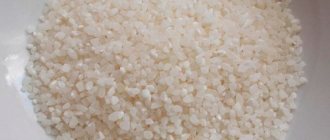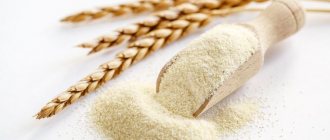Drinking milk is unfashionable. In the cafe - cappuccino with soy, porridge with almond, dessert with coconut. All bloggers are lactose intolerant, every second popular nutritionist says that only plant-based drinks are the way to a healthy intestine and, therefore, skin. Milk has fallen so out of favor that it has become suspicious: how organic is this whole campaign? However, our goal is the same: to find out whether dairy products are actually harmful for an adult.
BeautyHack asked all the accumulated questions to experts - an endocrinologist and diabetologist, a nutritionist, and a cosmetologist.
What's good about milk?
Let's talk about the facts. Milk, whatever one may say, is a storehouse of useful elements. It is a complete source of proteins, lipids and carbohydrates; it contains essential amino acids and many useful macro- and micronutrients. In addition to the fact that it contains valuable components, milk and fermented milk products perfectly satiate and provide this feeling of fullness for a long time due to the gradual breakdown of protein.
Calcium Essential for bone tissue, three servings of dairy products provide 80% of the daily requirement (confirmed by the Institute of Nutrition of the Russian Academy of Medical Sciences)
Potassium maintains the acid-base balance of the blood and water balance
Vitamin D Boosts immunity and mood
Amino acids Milk proteins contain the full necessary set of amino acids and are easily absorbed by the body
B vitamins An essential and important component of the daily diet: they normalize the functioning of the nervous and cardiovascular systems, participate in cell growth, energy metabolism, and muscle function
So what's wrong with him?
Recent studies on the topic “milk - benefits and harm to the body” directly point to the culprit - lactose (essentially milk sugar). This component is poorly broken down in adults: when it enters the intestines, it creates a breeding ground for toxins and harmful bacteria.
You can also increasingly hear statements that milk in large quantities can contribute to the development of a number of diseases - from problems with the digestive system to sclerosis and diabetes. This product should especially not be used by people over 55 years of age.
Well, such horror stories as antibiotics in store bottles, increased levels of female hormones and, finally, swelling and cellulite that milk provokes are inevitable. Let's figure it out.
Milk
Why do people even think that milk can interfere with losing weight? This is due to our “beloved” father of the paleo diet ( which we can’t stand ) Cordain.
In the course of his “research”, he discovered that milk directly affects our weight: it promotes inflammatory processes in the body, provokes allergies and, as a result, we gain weight. In addition, evil milk and its friend cottage cheese destroy the immune system by not being digested in people’s stomachs.
Cordain even writes that milk and dairy derivatives change hormonal levels. The products promote the production of aldosterones, they make any sports fan “drenched in water”, in general, the circle closes and we feel that there is no way out of it.
Do you agree that this looks, to put it mildly, unscientific?
In the real world, it has long been proven that dairy products have extremely beneficial properties for losing weight: they give a long-lasting feeling of fullness. Some studies have shown that, for example, in people with calcium deficiency, milk helps curb hunger.
Several other data indicate that whey protein (casein) also satisfies well, increases the amount of insulin, and therefore allows you to not feel hungry for a longer time: when participants ate high-protein yogurt as a snack, at lunch They ate, on average, almost 200 fewer calories compared to those who ate regular yogurt!
Moreover, milk does not make you fat! In a study that lasted 1 year, increased consumption of dairy products at the same caloric intake did not affect participants' fat mass .
There are, of course, opposite experiments: for example, in one of them it was proven that consuming low-fat dairy products did not contribute to weight gain, but “fat milk” did the opposite.
True, no one thought about it or recorded the number of calories per day , so 99.9% of weight gain is associated with a banal excess of calories, and not with the product consumed!
So is it possible to drink milk while losing weight or not, is it useful for dieting? Of course yes! A huge number of high-quality studies have proven that in itself, even if increased consumption of dairy products does not affect body composition and weight gain! It's all about the number of calories and your tolerance (more on that below).
And you will find out the answer to the question whether you can drink milk at night or in the evening in the article Can and should you eat before bed?
What is lactose? Is she really dangerous?
Maria Chamurlieva, PhD, cosmetologist, dermatovenerologist at the TORI aesthetic medicine clinic, says:
Maria Chamurlieva
Candidate of Medical Sciences, cosmetologist, dermatovenereologist at the aesthetic medicine clinic TORI.
Lactose is a disaccharide consisting of two simple sugars: galactose and glucose. To assimilate this substance, a special enzyme is required - lactase, which is produced in the human body only during the first few years of life. It is necessary for the absorption of mother's breast milk and obtaining all the necessary vitamins and macroelements. With age, in most people, the production of this enzyme is gradually inhibited and may stop completely,” says Maria Chamurlieva, PhD, cosmetologist, dermatovenerologist at the TORI aesthetic medicine clinic.
Not everyone is able to digest lactose, that's true. But for the most part, this is due to genetic predisposition and is expressed differently in different nationalities. Milk is not digestible by residents of Asia, Africa, South America and some countries where historically it was not a source of nutrition. This does not apply to residents of Northern Europe and Russia - everything is fine with us.
Symptoms of lactase deficiency, as stated in adults, include nausea, flatulence, problems with the stomach and intestines, the appearance of rashes and spots on the skin, dizziness, and weakness.
Have you already found all the signs? Take your time and read on!
How to determine lactose intolerance?
As a rule, symptoms of lactose deficiency in adults appear no later than two hours after drinking milk.
A milk allergy can only be diagnosed with the help of an experienced doctor. He creates a diet that completely excludes the presence of lactose, and sets a period during which control will be carried out. In parallel, a laboratory study is carried out to assess the presence of carbohydrates, which form the basis of various sugars.
The most reliable information can be obtained by taking a genetic test. By the way, sometimes it can show that lactose is not the problem. Some people experience intolerance to cow's or goat's milk protein.
Edema: dairy products retain water in the body
Why can't some people have milk? To be fair, it is worth noting that there is a possibility that milk and cottage cheese can retain water in the body. True, these are special cases, but swelling from cottage cheese or milk does occur.
If you do not have any diseases, then the negative impact of milk protein may occur due to the tiny amount of sodium and potassium in the body for natural reasons (for example, table salt has been removed from the diet).
Well, of course, this scenario primarily affects people who follow the lead of one of the fitness myths, which says that on a diet you need to minimize salt consumption, they say, salt retains water. The funny thing is that it is the lack of salt that dramatically affects water retention in the body.
In conditions of lack of salt, the body tries to retain the available sodium and its crumbs, which it receives from food. Sodium retention leads to water retention, weight gain, edema, circulating blood volume, extracellular fluid, and increased central venous pressure.
Edema: causes and remedies
And dairy products, as a rule, are an excellent source of vitamins and minerals; a serving of cottage cheese can contain up to 500 mg of sodium, i.e. under conditions of sodium deficiency, when dairy products enter the body, we get the same water mattress effect. The solution to this problem is simple - add salt











